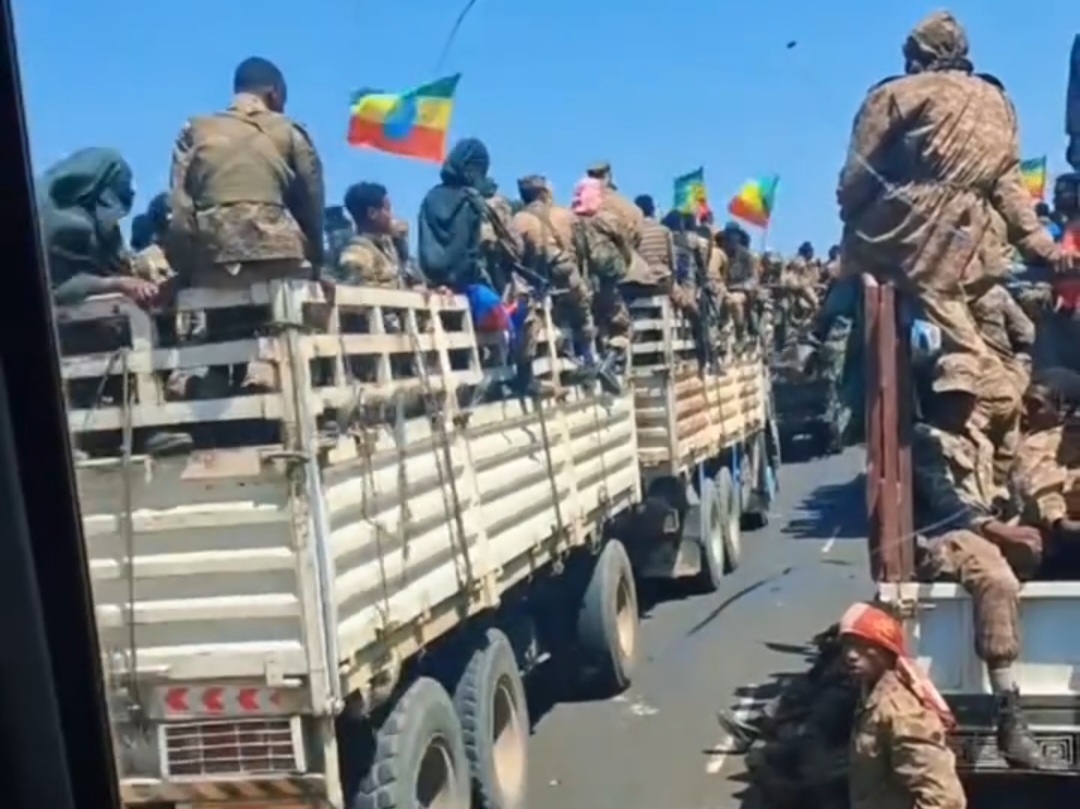During the past one year, Ethiopia has been grappling with an escalating crisis in its Oromia region, where reports of kidnappings and ransom demands have become disturbingly frequent.
These incidents, which particularly target travelers and residents of ethnic Amhara and Tigrayan origins, have created widespread fear and destabilization in areas such as Arsi and Wollega zones.
This phenomenon is part of a larger context of insecurity in Ethiopia, a country already facing political, ethnic, and economic challenges.
The hijackings often target passenger buses traveling between regions, with armed groups intercepting buses and vehicles, abducting passengers, and taking them for ransom.
The abductees’ families are typically asked for ransom amounts that range from several hundred thousand Ethiopian Birr to over 2 million Birr, (roughly 20,000 USD).
The ransom demands are communicated directly to the victims’ families, with threats of violence or even death if the money is not paid promptly.
This phenomenon is not confined to travelers. In some cases, ethnic groups—particularly Amhara and Tigrayan people—are forcibly taken from their homes in the Oromia region, further escalating ethnic tensions in a country already burdened with internal strife.
In Arsi and Wollega zones, these kidnappings follow a pattern of ethnic targeting, where individuals are selected based on their ethnicity and background, then used as leverage to extract money from their families.
The kidnappers often use the banking system to facilitate the transfer of ransom payments, a point of controversy and concern among the Ethiopian public.
A major point of contention in this crisis has been the involvement of Ethiopia’s largest bank, the Commercial Bank of Ethiopia (CBE).
Despite the illegal nature of these transactions, ransom payments have been reportedly made through official banking channels.
Families are instructed to deposit large sums of money into specific bank accounts, with the expectation that their loved ones will be released once the payment is confirmed.
This has raised serious questions about the bank’s oversight mechanisms and the Ethiopian government’s role in either allowing or failing to prevent such illegal transactions.
The president of the Commercial Bank of Ethiopia, when questioned about these activities, provided a response that many Ethiopians found vague and irresponsible. Instead of acknowledging the severity of the issue or outlining steps the bank was taking to address it, the bank’s leadership appeared dismissive of the concerns.
This has only fueled suspicions that the government, or at least certain elements within it, may be aware of or complicit in the kidnappings and ransom payments.
Some speculate that the government either knows more than it is revealing or is unable to control the armed groups responsible for the kidnappings.
Ethiopia is currently experiencing a period of significant political instability, with ongoing ethnic conflicts, the aftermath of the Tigray War, and the tensions within Oromia complicating the security situation.
Given this complex environment, there are fears that these kidnapping operations could be part of a broader destabilization effort or a symptom of the government’s inability to assert authority over all regions of the country. Public frustration has been exacerbated by the fact that, in some cases, victims who have been ransomed are never returned to their families, and others have been found dead even after the money has been paid.
These tragic outcomes suggest that the armed groups are not only financially motivated but also driven by deeper political or ethnic goals.
The hijackings and ransom demands are taking a significant toll on Ethiopian society, both emotionally and economically.
Families are often left in financial ruin after paying the ransoms, which can amount to life savings or require taking out loans. In some cases, communities have had to pool resources to meet the demands.
The psychological trauma on both the victims and their families is immense, and the constant threat of being targeted has created a climate of fear in certain regions.
Additionally, the ethnic dimensions of the crisis—particularly the targeting of Amhara and Tigrayan people—are contributing to the already fraught relations between different ethnic groups in Ethiopia.
This is a country with a history of ethnic federalism, where tensions between different groups can easily flare into violence.
The kidnapping crisis risks deepening these divisions, as it further isolates minority communities in areas like Oromia, who may already feel vulnerable and marginalized.
Addressing this crisis will require a multifaceted approach.
First and foremost, the Ethiopian government must acknowledge the scale of the problem and take decisive steps to curb the activities of the armed groups responsible.
This could involve strengthening security forces in regions like Oromia, improving intelligence operations to track down the kidnappers, and establishing a more robust system of oversight to prevent the use of banks for ransom payments.
Moreover, financial institutions, particularly the Commercial Bank of Ethiopia, must enhance their regulatory frameworks to identify and block suspicious transactions. International cooperation may also be necessary, especially if the armed groups are using global financial networks to facilitate their activities.
Involving international organizations to provide oversight and support could help Ethiopia combat the growing trend of hijacking and ransom demands.
Another important step is fostering dialogue between Ethiopia’s diverse ethnic communities to ease tensions and promote peace.
The ethnic dimension of these kidnappings cannot be ignored, and efforts to heal divisions and promote national unity will be crucial in preventing future conflicts.
Ethnic-based violence has plagued Ethiopia for decades, and without a concerted effort to address these underlying issues, the hijacking crisis may only be the beginning of a larger breakdown in the country’s social fabric.
The hijacking crisis in Ethiopia’s Oromia region is a tragic reflection of the country’s broader struggles with political instability, ethnic tension, and economic hardship.
As armed groups continue to target travelers and ethnic groups for ransom, the government’s response remains inadequate, and suspicions of complicity or negligence persist.




Living in oromia region becomes a nightmare.
Yes. My brother was kidnapped and we had to pay 1 million brr through commercial bank of Ethiopia.